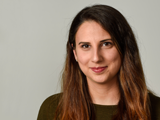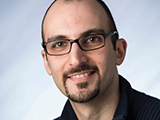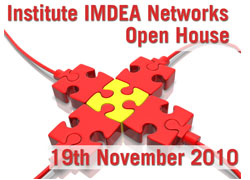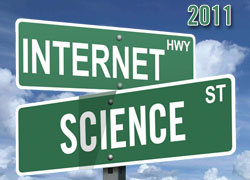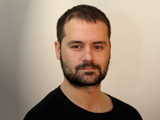IMDEA Networks

142 results for:antonio fernandez anta
PhD Thesis defense: Achieving Reliability and Fairness in Online Task Computing Environments
We consider online task computing environments such as volunteer computing platforms running on BOINC (e.g., SETI@home) and crowdsourcing platforms such as Amazon’s Mechanical Turk. We model the computations as an Internet-based task computing system under the master-worker paradigm. A master entity sends tasks across the Internet, to worker entities willing to perform a computational task.
Go to eventarrow_right_altPhd Thesis defense: Online Scheduling in Fault-Prone Systems: Performance Optimization and Energy Efficiency
Everyone is familiar with the problem of online scheduling, even if they are not aware of it; from the way we prioritize our everyday decisions to the way a delivery service must decide on the route to follow in order to cover the ongoing requests. In computer science this is a problem of even greater importance.
Go to eventarrow_right_altPhD Thesis defense: Opportunistic Device-To-Device Communication In Cellular Networks: From Theory To Practice
Cellular service providers have been struggling with users’ demand since the emergence of mobile Internet. As a result, each generation of cellular network prevailed over its predecessors mainly in terms of connection speed.
Go to eventarrow_right_altInstitute IMDEA Networks Open House 2010: Research and development
Why should I consider a future in research? What sort of opportunities does a PhD open up for me? What makes research in the science of networks such an exciting career choice? How can we ensure that the Internet can grow and adapt to ever-changing needs over the coming decades? What lies beyond the Internet? What inspires network research?
Go to eventarrow_right_altACM e-Energy 2014 – The 5th International Conference on Future Energy Systems
Several members and stakeholders of IMDEA Networks Institute are leading the organization of ACM e-Energy 2014. Marco Ajmone Marsan and Antonio Fernández Anta are both long-standing researchers at the Institute. Two leading international figures in networking research, Jim Kurose from University of Massachusetts at Amherst (USA) and Jon Crowcroft, from University of Cambridge (UK), are both members of IMDEA Networks’ Scientific Council. Ajmone, Fernández Anta, and Kurose are Steering Committee members the ACM e-Energy conference, whereas Crowcroft is the General co-chair of the 2014 edition.
Go to eventarrow_right_alt4th IMDEA Networks Annual International Workshop: Data
Institute IMDEA Networks annually holds a by-invitation-only thematic workshop in Madrid. The workshop accompanies a meeting of our Scientific Council comprised by prominent researchers. In addition to talks by Scientific Council members, the workshop includes invited talks by external experts in the research theme of the workshop. The goal of the 2012 workshop is to foster discussion on a critical aspect of research in networking: data.
Go to eventarrow_right_alt3rd IMDEA Networks Annual International Workshop: Internet Science
Institute IMDEA Networks annually holds a by-invitation-only thematic workshop in Madrid. The workshop accompanies a meeting of our Scientific Council comprised by prominent researchers. In addition to talks by Scientific Council members, the workshop includes invited talks by external experts in the research theme of the workshop. The 2011 workshop theme is Internet science with a focus on social networking.
Go to eventarrow_right_altTraining Course: 'Detection, Prediction & Monitoring on Online Social Networks: leaders, trends and outliers'
Social scientist have traditionally had limited access to data about individuals, like their personality, relationships or tastes. The widespread use of Online Social Networks (OSNs) has changed this drastically, since OSNs provide huge amounts of data to work with.
Go to eventarrow_right_altTowards Preventive Safety Systems for Cars: The Impact of Driving Habits in Accident Prediction
The impact of car accidents in human lives calls for a profound understanding of accident risk. However, the unpredictability of accidents and the unfeasibility of their reproduction make it difficult to identify the causes and patterns underlying individual accidents.
Go to eventarrow_right_altPhD Thesis defense: Structural Issues and Energy Efficiency in Data Centers
With the rise of cloud computing, data centers have been called to play a main role in the Internet scenario nowadays. Despite this relevance, they are probably far from their zenith yet due to the ever increasing demand of contents to be stored in and distributed by the cloud, the need of computing power or the larger and larger amounts of data being analyzed by top companies such as Google, Microsoft or Amazon.
Go to eventarrow_right_alt

